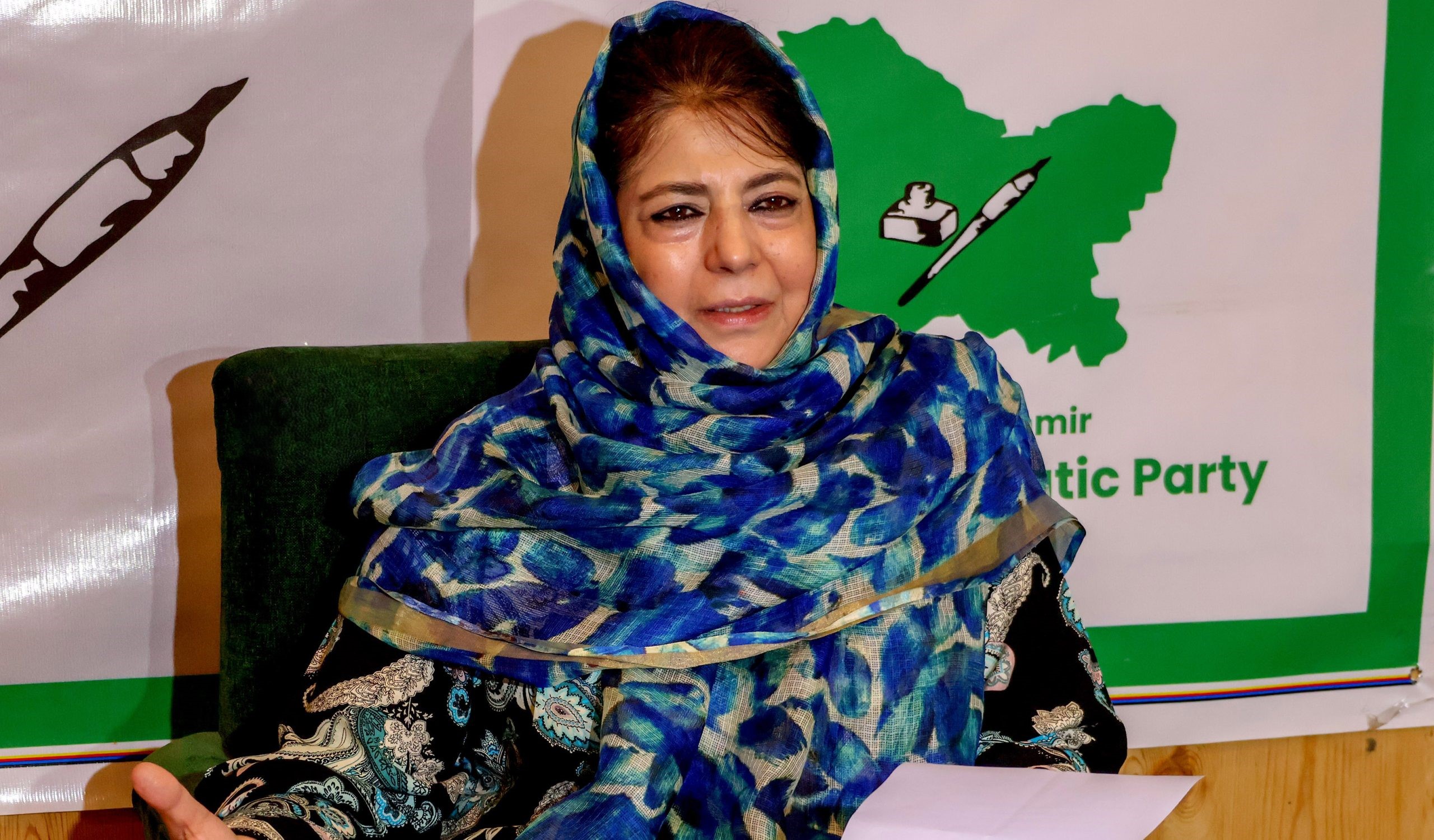Language, Identity, and the Battle for Urdu in Jammu & Kashmir
By: Javid Amin | Srinagar | 16 July 2025
The Urdu Controversy: A Lingual Flashpoint
In July 2025, Jammu and Kashmir found itself at the center of yet another political and cultural firestorm — this time, over language. The controversy erupted after the Central Administrative Tribunal (CAT) issued an interim stay on the requirement of basic Urdu proficiency for candidates applying for the prestigious Naib Tehsildar posts in the region.
The ruling directed the Jammu and Kashmir Services Selection Board (JKSSB) to accept applications from aspirants with knowledge of any of the five official languages recognized under the J&K Official Languages Act, 2020 — Urdu, Hindi, English, Dogri, and Kashmiri.
The decision was instantly politicized, dividing the region on linguistic lines and igniting fears over identity erosion, regional imbalance, and communal polarization.
Mehbooba Mufti: Urdu Is Being “Unfairly Communalised”
Peoples Democratic Party (PDP) President Mehbooba Mufti was among the first prominent voices to publicly criticize the CAT’s decision. Taking to social media platform X (formerly Twitter), she wrote:
“It is deeply unfortunate that our judiciary appears to be influenced by divisive politics. Urdu, a recognised official language for decades, is now being unfairly communalised.”
Mufti emphasized that the use of Urdu in Kashmir’s revenue, legal, and administrative documents predates independence and that demanding basic Urdu proficiency is not exclusionary, but practical.
“Our revenue records and administrative work continue to be maintained in Urdu, and it is only logical that applicants for the post of Naib Tehsildar possess basic proficiency in the language,” she said.
BJP’s Opposition: A Push for Linguistic “Inclusivity” or Politics of Polarisation?
On the other side of the political divide, the Bharatiya Janata Party (BJP) hailed the CAT verdict as a victory for inclusivity and claimed that making Urdu mandatory would have disadvantaged non-Urdu speaking candidates, particularly in Dogri-speaking Jammu.
The BJP had previously launched a campaign to remove Urdu as a mandatory requirement for Naib Tehsildar positions, calling it an “outdated colonial legacy.”
However, critics argue that the BJP’s stand is less about inclusivity and more about political optics in the sensitive Jammu region — where linguistic identity often overlaps with religious and regional loyalties.
Waheed Parra & Sajad Lone: “Linguicide in the Name of Reform”
Joining Mehbooba Mufti in condemning the CAT’s ruling was PDP’s Pulwama MLA Waheed Parra, who described BJP’s rhetoric as dangerous:
“Viewing Urdu through a communal lens marks a dangerous and disgraceful new low in our political discourse in J&K.”
Similarly, People’s Conference President Sajad Lone, MLA from Handwara, didn’t mince words. He called the removal of Urdu from the Naib Tehsildar criteria part of a systematic effort to marginalize the Kashmiri-speaking majority:
“This is not just about employment qualifications — it’s about cultural and linguistic survival. What we are witnessing is the slow linguicide of Urdu in Kashmir.”
Lone added that excluding Urdu from administrative relevance amounts to erasing the heritage and voice of a majority of Kashmiris.
A Language Rooted in Governance, Not Just Culture
Urdu is not merely a cultural artifact in Jammu & Kashmir. It has long served as:
-
The language of revenue records and land deeds
-
The medium of lower courts and district administration
-
The preferred written script for official notifications and village records
Making Urdu proficiency optional, many argue, will undermine administrative efficiency and alienate locals from their own governance systems.
Former Chief Minister Omar Abdullah had earlier also defended Urdu’s continued role in governance, emphasizing that linguistic decisions must be practical, not political.
Why the Urdu Debate Matters Beyond Language
This controversy, like many others in Kashmir, isn’t just about words—it’s about identity, governance, and autonomy.
-
Who decides the language of administration?
-
Do regional identities have a say in hiring norms?
-
Is India’s multilingual democracy respecting local voices?
The Urdu debate has thus come to symbolize the larger Kashmiri struggle — to preserve their identity, demand justice, and resist imposed uniformity from Delhi-centric policies.
Current Status: Recruitment Deferred, Debate Intensifies
Following CAT’s order, the JKSSB put the Naib Tehsildar recruitment on hold. The original advertisement issued in June 2025 was deferred on July 15, as legal deliberations continue.
Meanwhile, political leaders, civil society, and linguistic scholars have called for a public consultation process to resolve the impasse in a way that respects both regional diversity and administrative needs.




